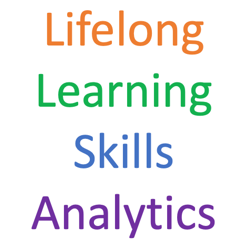 The modern conceptualisation of employment is rapidly shifting. While our parents planned to work for the same company for life, our children can expect to change career many times. Rather than completing a set amount of schooling early in life to achieve a qualification, the 4th Industrial Revolution means that people will increasingly need to return to the education sector: (i) for further training to enhance a skill base (ii) to gain new skills as their field is disrupted by technology, or (iii) to re-skill so that they might transition into new careers. In this context, helping students to achieve success becomes a project in lifelong learning.
The modern conceptualisation of employment is rapidly shifting. While our parents planned to work for the same company for life, our children can expect to change career many times. Rather than completing a set amount of schooling early in life to achieve a qualification, the 4th Industrial Revolution means that people will increasingly need to return to the education sector: (i) for further training to enhance a skill base (ii) to gain new skills as their field is disrupted by technology, or (iii) to re-skill so that they might transition into new careers. In this context, helping students to achieve success becomes a project in lifelong learning.
In this future, not only will data need to flow around an institution’s digital learning infrastructure, but qualifications will need to cross institutional, geographic and sector boundaries, in order to recognise prior learning and to personalise the learner experience. In a new stream of work at CIC, we’re developing curriculum analytics that use natural language processing to analyse the skills being taught in our courses.
A specific challenge is the problem of recognising prior learning (RPL) between two educational institutions. We have identified the potential of combining natural language processing and skills taxonomies to map between subject descriptions from two universities. A new article benchmarks the performance of two algorithms to facilitate this RPL, accepted to the premier international Learning Analytics research conference. Many congratulations Kirsty Kitto and her team, which includes contributions from two first year PhD students Nikhil Sarathy and Aleksandr Gromov, and co-supervisors Katarzyna Musial from the Engineering & IT faculty, with CIC’s Ming Liu and Simon Buckingham Shum.
Kirsty Kitto, Nikhil Sarathy, Aleksandr Gromov, Ming Liu, Katarzyna Musial, and Simon Buckingham Shum. (In Press). Towards Skills-based Curriculum Analytics: Can we automate the recognition of prior learning? Proceedings of the 10th International Conference on Learning Analytics & Knowledge (LAK2020), Frankfurt.